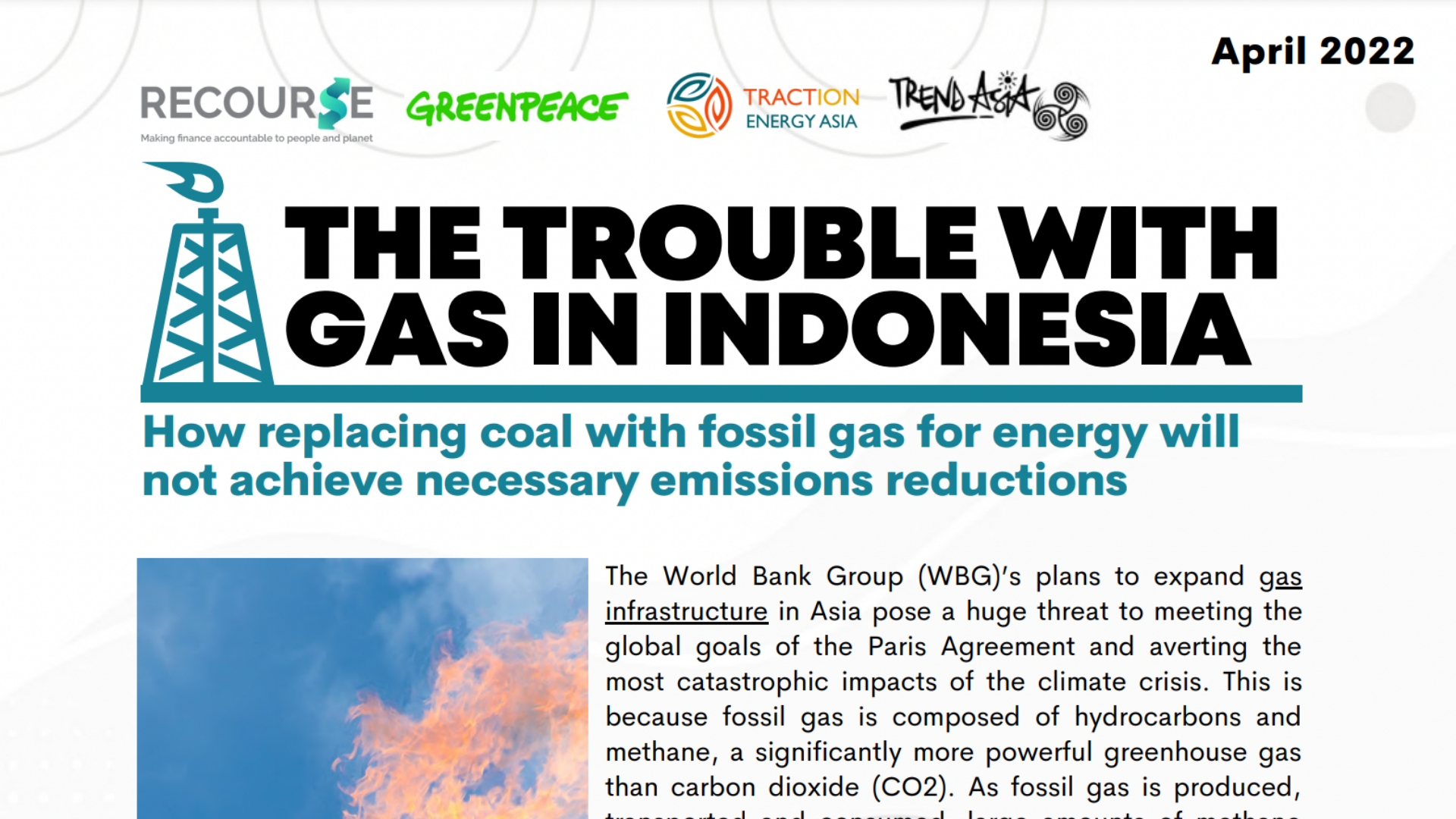- 14.04.2022
- Ecological justice
- Array
At the UN Climate Talks (COP26) in Glasgow, the Indonesian government signed the Global Methane Pledge. In doing so it pledged to take voluntary actions to contribute to a collective effort to reduce global methane emissions by at least 30 percent from 2020 levels by 2030, which could eliminate over 0.2?C warming by 2050.
However, the World Bank’s current strategy for investing in Indonesia in the crucial next few years, the Country Partnership Framework (CPF) 2021–24, supports the “acceleration of deployment of natural gas and biogas”. This strategic document includes the aim of “improving the investment climate for private investors by strengthening natural resource governance, gas infrastructure planning, and regulatory reform.” There is a specific mention of planned technical assistance to support gas and alternative energy sources that will form the basis for new gas projects in Indonesia.
This gas infrastructure planning may include new fossil gas power stations, pipelines and ports, LNG import terminals and regasification plants. Such projects come with corresponding environmental and health impacts as well as methane emissions that will contribute significantly to Indonesia’s GHG emissions.
The World Bank Group must:
- Urgently redirect direct and indirect finance away from fossil gas to align both private investment and public policy and practice with the Paris Agreement’s goal of keeping global warming below 1.5C;
- Ring-fence public finance for energy in Indonesia to support a just transition away from coal; to leapfrog the gas phase of development and to support local, sustainable and renewable energy sources;
- Finance sustainable, renewable energy sources and increase support for energy storage and grid modernisation to allow more renewable energy to be integrated into the power system;
- Exclude support for unproven expensive technologies and false solutions like coal gasification and Carbon Capture, Utilisation and Storage (CCUS)that continue to justify fossil fuel exploitation and new fossil fuel power generation.

